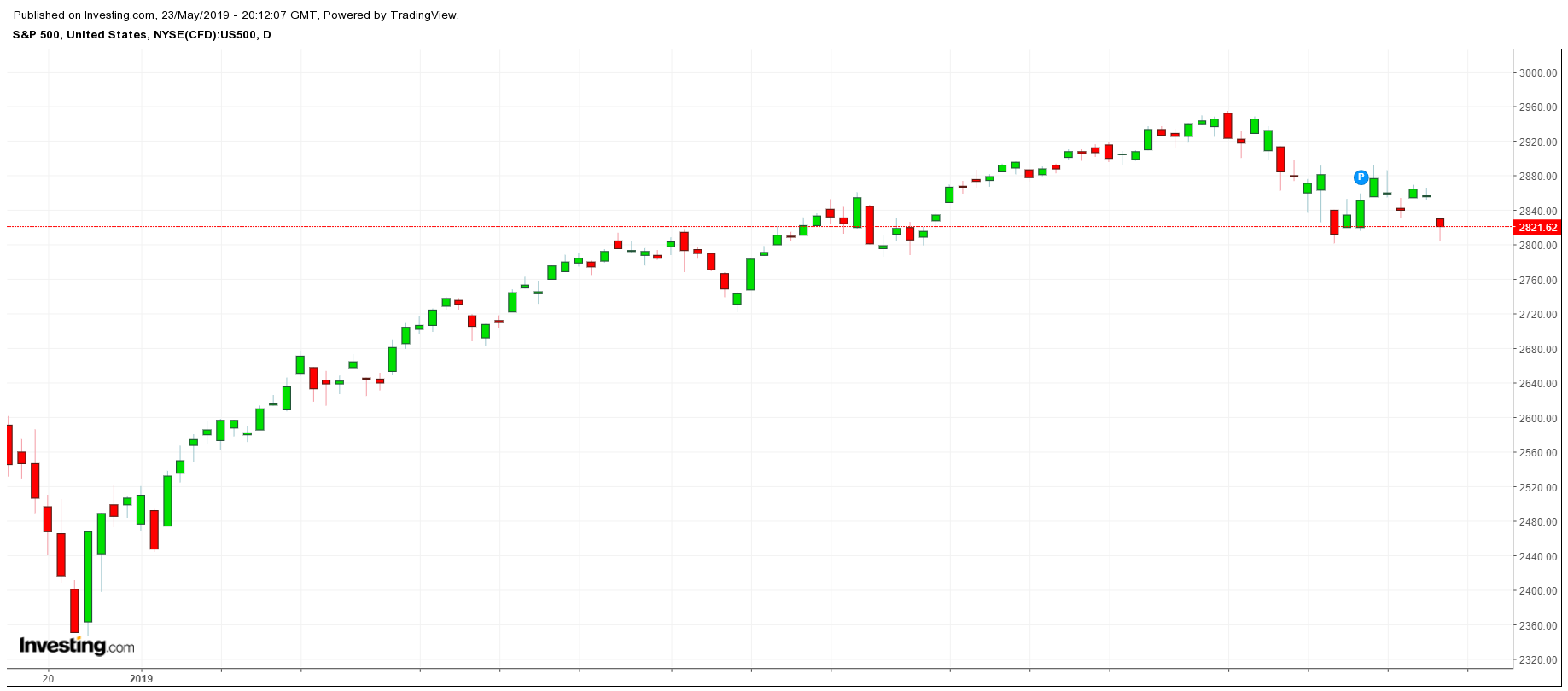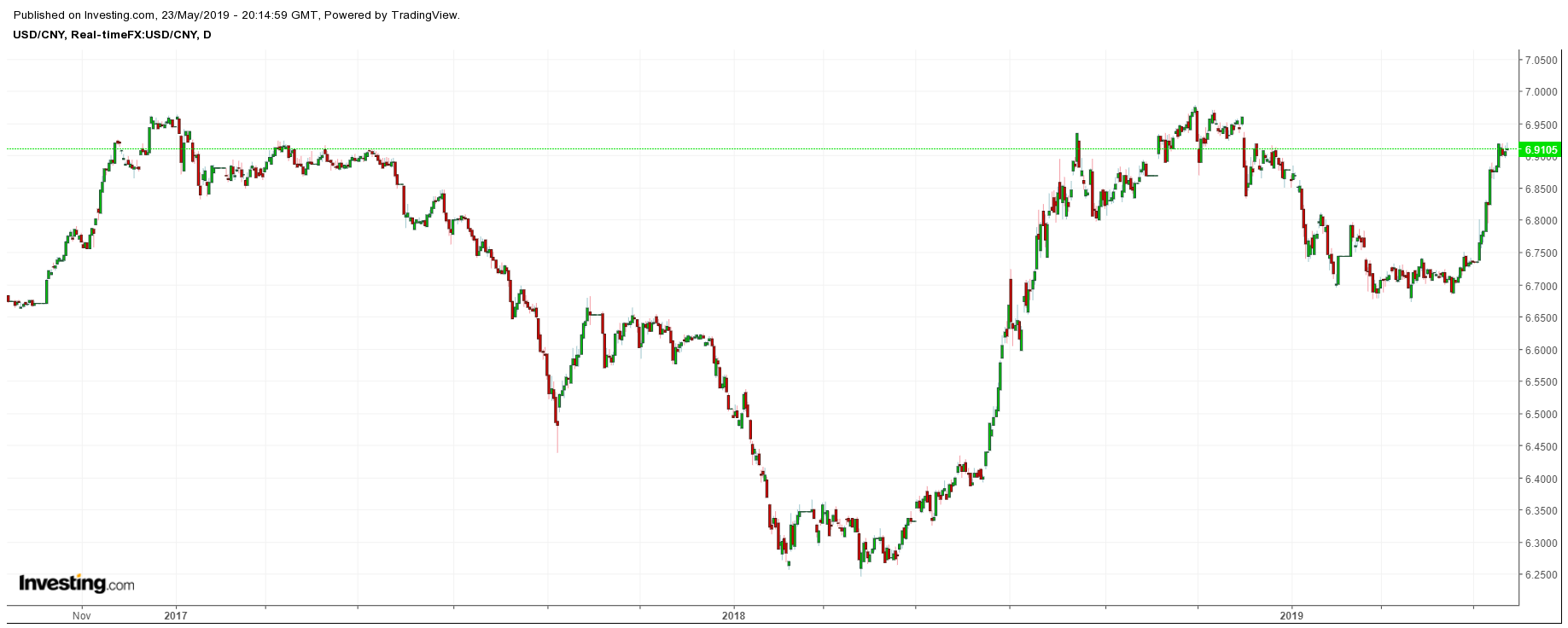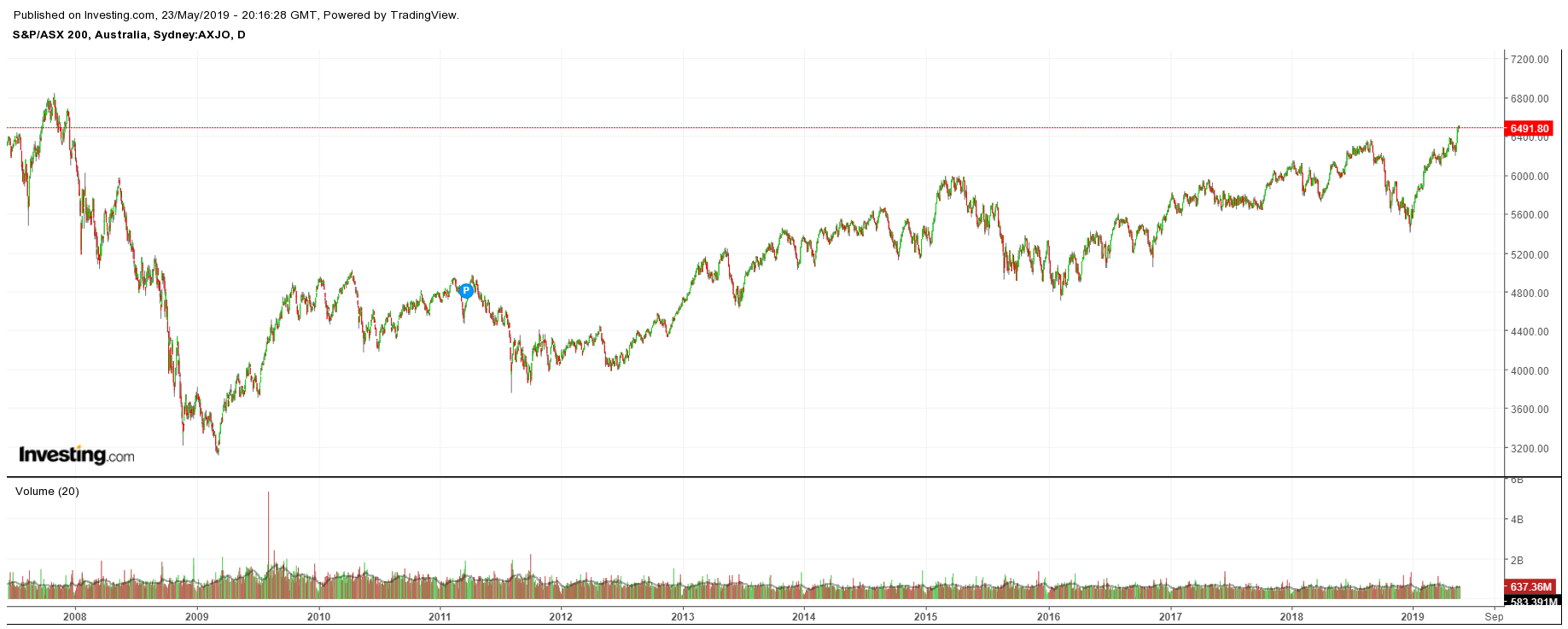This post was written exclusively for Investing.com.
The stock market has been resilient in the face of the rising trade tensions between the U.S. and China, with the S&P 500 falling about 5% from its May 3 close of 2,945.64. Certainly not a massive decline given all the warnings of economic doom that a potential trade war could have on the U.S., China, and the global economy. Is it the calm before the storm, or will the rising tensions have a much smaller effect than some dread? At this point, with the S&P 500 still trading near its all-time highs, it is hard to get nervous.
Despite the dire proclamations, it seems entirely possible that a trade war may not have a big hit on the U.S. economy. The most obvious reason: the value of the Chinese currency itself, the renminbi, also known as the yuan. Since the trade war started in 2018, the yuan has devalued by as much as 11% versus the dollar. A cheaper currency may very well soften the blow or even neutralize any tariffs imposed on China by the U.S.
Still, investors are nervous a trade war could hurt earnings in the U.S. But even a 4.5% a decline in the S&P 500 estimates forecast by some analysts would leave the S&P 500 trading at 16 times its 2020 estimates, which is below the historical average of one years forward PE of 17 to 18.

China's Secret Weapon: Using Its Currency
Since the trade war started in early 2018, the yuan has weakened against the dollar rising from around 6.25 to around as high as 6.95, quoted as the dollar to the yuan; a rising value indicates a weakening yuan. Additionally, the yuan is not a free-floating currency: the Peoples Bank of China (PBOC) sets a mid-point value every day, and the currency can then trade in a range up or down of as much as 2%.
With control over the direction of its currency, China could easily use the currency as a tool to fight off any tariffs the U.S. imposes, allowing it to devalue versus the dollar. As the currency weakens, U.S. imports from China become cheaper, which in turn helps soften the blows from any tariffs.

S&P Trading Near the High
Given the broader S&P 500’s pullback to this point, it appears that overall investors aren't overly concerned about a U.S., Chinese, or even global slowdown. A 5% decline off an all-time high isn't massive, especially coming off a rally that had seen the S&P 500 rise by nearly 25% from its December lows, in an almost straight line. Indeed, in a broader context, the recent pullback may be as related to tariff concerns as any natural pause in a rally.
The Australian Market Agrees

When taking it one step further, the Australian stock market appears to agree that the impact of U.S. tariffs isn’t likely to trigger a Chinese slowdown. The S&P/ASX 200 is trading at its highest level since November 2007. Based on data from the World Bank, Australia exports about $95 billion a year of goods to China, more than half of what the U.S. exports to China. Except, Australia has a GDP of about $1.3 trillion, making China a significantly more important trading partner to the Australian economy.
Australia's key export to China is iron ore, a key material for the creation of steel used in construction. A slowing China economy would likely result in less demand for this metal, and that weakness would reflect in the Australian stock market.
At this point, it isn’t clear just how impactful a U.S./China war will be on the global economy or the stock market. Should the trade war linger in the status quo, the markets are suggesting the impact may be small and the current declines may prove to be just a temporary pause in a long-term uptrend for stocks.
